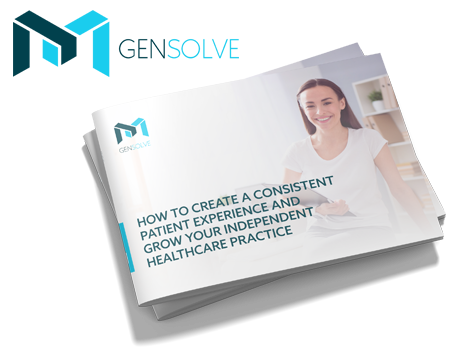Independent practitioners face many challenges when they’re setting out on their own. Credibility and reputation can be, in some part, established by ensuring their new business is registered with the Health and Care Professions Council (HCPC) as early as possible – a legal requirement.
However, while the HCPC certifies the qualification of its registered professionals, it exists predominantly to uphold standards of healthcare training, education and good practice in the interests of the public. It does not address professional issues faced by the majority of practitioners who, while possessing extremely high levels of clinical expertise, have little or no experience of running a business.
This often leads practitioners to seek out associations they can join to offer them support in areas they feel ill-equipped to tackle: marketing, business administration and accounting, for example.
But how useful are these associations to independent practitioners? Is it worth joining up? Or do they offer a false sense of security without delivering on support?
Professional clinical associations: pros and cons of membership
Clinical excellence is only one aspect of running a successful private practice. Business management is the other – an area most healthcare professionals are unfamiliar with. Associations often recognise this, offering incentives to join in the way of business support, together with insurance policies, legal advice, specialist products and other services.
Physio First, for instance, promises business advice, professional support, evidence-based marketing reports, software, discounts on clinical supplies plus live and social media networking opportunities among its membership benefits – all very useful. The British Chiropractic Association (BCA), The Institute of Chiropodists and Podiatrists, The Institute of Osteopathy and The Society of Sports Therapists all offer similar benefits of membership.
The local world of independent healthcare can be a lonely one where there is a reluctance to share information due to a fear of losing business to a rival. Therefore, the prospect of entering a community where open discussion is encouraged can be very attractive. But is this really what you get?
Often, there is a dearth of buyers at networking events. These are far more often filled with business owners who want to sell. While you may well make some sympathetic contacts who are more willing to share their experiences with you than your local neighbours, networking events are likely to turn into something that you only want to attend once.
Having extra framed ‘association member’ documents on the wall of your fledgling practice can inspire trust in your clients when you are starting out – another common reason for membership. However, the reality is that professional associations are unlikely to mean anything to your clients. They will be far more interested in personal reviews online that suggest you can take away their back pain.
At the very least, if something were to go wrong with a client, your membership could offer you some protection in the shape of a cost-effective insurance policy or legal advice.
How to get the most out of your professional association membership
The most important aspect of membership is how you approach it and your expectations of the benefits it will bring. And there are benefits to be had. Even if you only expand your network of professional friends, there may be important lessons to learn from them.
You will probably make contacts who are happy to tell you about the business systems they use, how they market their businesses, their successes and failures. These stories alone can be extremely useful to a new business owner. You could find yourself saving time and money by using specific software you never knew existed, for instance, or working with a website designer recommended to you by a new contact. Even SEO advice offered over a social drink could help your business get found more often online.
Another benefit of expanding your professional network is being able to set benchmarks for yourself. Business planning and goal setting can be very challenging for those who’ve never done it before. Understanding ‘what good looks like’ is a great start. It gives you something to aim for and ultimately beat. Get talking to an experienced practice owner and pick their brains for key business facts: how they started out, secured investment, their current turnover and plans for growth.
Realistic expectations of professional association membership
Perhaps most importantly, if you join a professional association expecting to receive a sort of business mentorship, you’re probably going to be disappointed. They might promise lots of downloadable useful content, business planners and templates, but these are only valuable if you know what to do with them.
There can be a lot of sponsorship involved at events so expect to be marketed to when you attend. Once you’re past the sales pitch, treat the new network to which you now have access as a potential forum of friendly, practical individuals. If you expect to gain some real-world insights, receive some business tips and hear some great stories, you’ll be on the right track.
And who knows: you might make some new friends or even find a new business partner along the way.
The great news is that membership cost is not usually an issue, with most fees remaining nominal. So, if you’re curious about what association membership can bring you, why not sign up to one or two for a year and see what happens?











